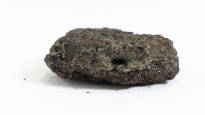Deep sea mining raises concerns about environmental harm. The fair distribution of financial benefits also raises discussion.
The International Seabed Organization ISA is currently trying to solve the conundrum of how to regulate the controversial deep-sea mining.
The issue of allowing deep sea mining is complex. The desired green transition metals can be obtained from the seabed for, among other things, the manufacture of batteries.
On the other hand, the environmental effects of the oceans breaking into the untouched and partially unexplored seabed are worrying. More than 700 researcher has signed a petition for further research on the effects of mining.
These are seabed areas that do not belong to the sole control of any coastal state. Therefore, mineral resources are considered to be common to mankind.
Therefore, there are also economic issues involved, which international rules aim to solve.
– In the future, mining entrepreneurs should pay the association for the exploitation of mineral resources. The organization, on the other hand, should continue to distribute the received benefits, especially for the benefit of developing countries, says the legislative advisor of the Ministry of Foreign Affairs Sari Mäkelä.
Precious metals are at the bottom as nodules
If deep-sea mines are granted an operating permit, it will not be ordinary drilling. Seabed mining is mainly about nodules, metal-rich deposits.
They have been created over millions of years and are estimated to be at the bottom of the oceans, at depths of kilometers up to hundreds of billions of tons.
Instead of drilling mine shafts, the nodules are supposed to be vacuumed, as it were, with a collector lowered to the bottom of the sea. The nodules would be lifted to the surface with the help of pumps.
The pumps would create underwater noise that could disturb the seafood. The collection vehicle, on the other hand, would dump seabed sediment into the water. The impact of these consequences on the marine ecosystem is not exactly known.
Mining regulations are currently being prepared
The International Seabed Organization ISA has so far granted 31 permits for mapping the possibility of deep-sea excavations. No utilization permit application has been submitted yet.
Before you can apply for exploitation permits, you have to reach an agreement on international rules. These rules were prepared during a two-week meeting of the ISA’s 36-nation council in Jamaica.
Legislative adviser Sari Mäkelä followed the meeting from Finland.
– The council already confirmed the policy it made in March, according to which deep-sea mining should not start until the council has agreed on more detailed regulations concerning mining, i.e. the mining regulation, says Mäkelä.
It is planned to continue drafting the mining regulations in November. The goal is to complete the negotiations so that the rule can be approved in 2025. After that, it is possible to start processing the exploitation permits required to start mining operations.
